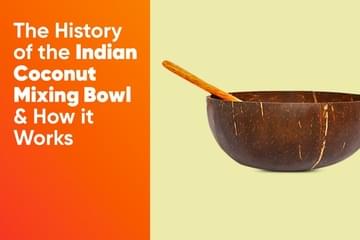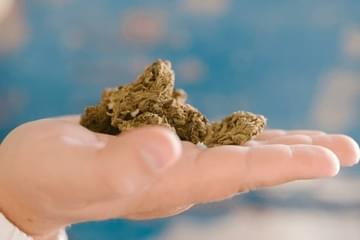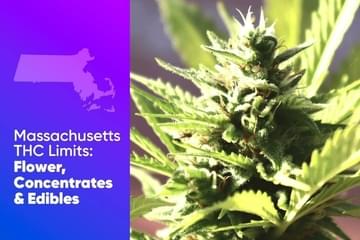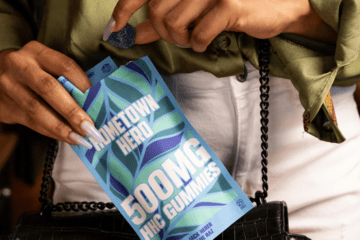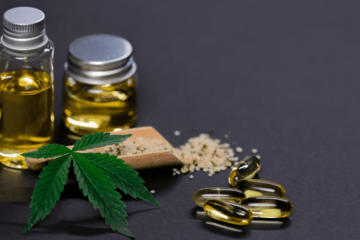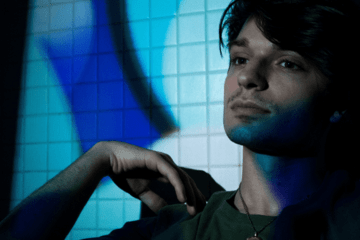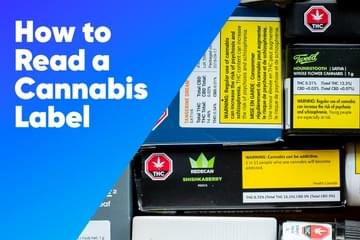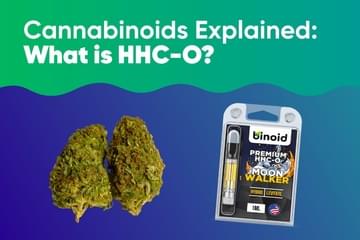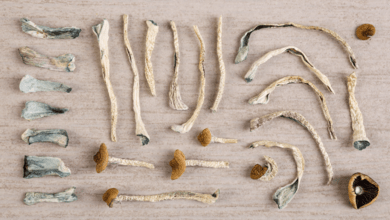
Psilocybin: The Next Plant-Based Medicine to be Legalized?
Published on 11/8/20
Most people have heard some sort of fantastical tale of magic mushrooms, otherwise known as the hallucinogen psilocybin. While this substance has often been associated with the counterculture movement and hippie culture, recent studies are finally examining how this drug may help vast amounts of people. Cities are also slowly starting to get behind the decriminalization of this naturally occurring substance as more beneficial uses float to the surface. In this article, we'll explore all that you need to know about psychedelic mushrooms.
What is Psilocybin?
 Flickr
FlickrPsilocybin is the main active ingredient in a group of over 100 mushrooms with hallucinogenic principles. Psilocybin, which is quickly converted into psilocin, alters the action of serotonin in the brain tissue. These effects are common across the board with similar drugs such as LSD, Mescaline and DMT. One of the key serotonin receptors affected, 5-HT2A, has agonist properties and is capable of altering thoughts, perceptions and emotions. Thoughts of euphoria and a distorted sense of time are very possible with psilocybin, as are adverse reactions such as panic attacks and nausea in some.
The duration of a magic mushroom trip is generally several hours. It does not have reinforcing properties, which means that it does not produce drug-seeking behaviors. Tolerance is possible with psilocybin; however, it is not known to create dependence, craving or withdrawal. Uses are typically episodic and experimental, and these mystical or peak experiences can contribute to problematic usages, like any other substance.
The Ancient History of Magic Mushrooms

This drug goes farther back than just the counterculture movement of the 1960s. Dating all the way back to 10,000 BC there has been mushroom iconography found etched into rocks in northern Australia. Most notably, there are many myths that the Aztecs and Mayans used magic mushrooms to communicate with the gods. Even the Egyptians, Romans and Greeks left evidence of psychedelic use.
Modern Mushroom History
This psychedelic was first introduced to the masses through a 1957 LIFE Magazine article, highlighting pilgrimages being taken to remote Mexican villages to consume magic mushrooms. This same year, Albert Hofmann became the first scientist to isolate the compound from mushrooms found in central America. Eventually, the drug was introduced into activism and was the most popular drug in the 1960s counterculture movement, where people used it as an escape from the world around them. It was not until Nixon passed the Controlled Substance Act of 1970, and the famous War on Drugs campaign was launched, which banned the likes of LSD, marijuana and magic mushrooms. This act still has many overreaching effects in America to this day.
Psilocybin Therapy and Benefits

While cannabis legalization has furthered the discovery of marijuana's many beneficial properties, more positives have risen to the surface about the effects of psilocybin as well. As discussed previously, psychedelic mushrooms are working with serotonin receptors in the brain to create positive reactions within the thalamus and cerebral cortex. In 1992 legislation was enacted to finally allow research on psychedelic agents. As far as psilocybin mushrooms go, the clinical potential of this drug is pretty far-reaching. The guiding principle, according to a professor at Johns Hopkins, is that a well-orchestrated psilocybin therapy session has the potential to break people out of their routines and traditional ways of thinking, giving them a glimpse at the larger picture in life. Johns Hopkins has become a leader in psychedelic research as it unveiled its Center of Psychedelic and Consciousness Research in 2019. Here is a look at some of the psychiatric and behavioral disorders being treated with psilocybin today, with the hopes of FDA approval on the horizon.
Suicidality and Depressive Moods
A study examined a year's worth of suicidal thoughts, suicide planning and suicidal attempts with psilocybin versus non-psilocybin users. The study found that suicidal thoughts and planning was the lowest among those who consumed mushrooms. Another study concluded that some patient's psilocybin experience was one of the most meaningful experiences of their life. This level of satisfaction with this kind of therapy could lead to efficacy of the drug.
Cancer-Related Psychological Anxiety
There was a double-blind study conducted showing that one dose of psilocybin dramatically improved quality of life and decreased depression and anxiety, especially when it comes to existential crisis of a terminal disease.
Obsessive-Compulsive Disorder
A few studies have shown that the administration of psilocybin may reduce OCD feelings due to the serotonergic mechanisms. The magic mushrooms were shown to reduce the intrusive thoughts of those with OCD.
Smoking Cessation and Other Addictions
In a study from Johns Hopkins University, it concluded that psilocybin therapy significantly improved abstaining from smoking. Here, the 5-HT2A receptor showed to have positive effects against treating addiction issues.
The Future of Psilocybin

With marijuana legalization continuing to take root in America, there are hopes that this is coming for psilocybin as well. Cities taking that first initial leap include Denver, Santa Cruz and Oakland, who have all decriminalized the drug. So, does this make psychedelic mushrooms legal? Unfortunately, the drug remains illegal. However, as long as it is under a certain amount, there would be no prosecution for possession with intent for personal use. Today, there are over 100 cities across the country pondering the idea of decriminalizing mushrooms. The activism group Decriminalize Nature (DN), has been behind many of the efforts across the country, hoping to educate and advocate for the decriminalization of mushrooms and other plants so we can improve our well-being. Canada is taking strides with magic mushrooms, allowing terminally ill patients to use psilocybin and other psychedelic treatments. There are even medicinal mushroom dispensaries popping up in Canada that will ship spores and micro-doses across the country.
Have you had positive experiences with psilocybin? Do you think there should be a greater push for legalization in America? Leave your thoughts below!









